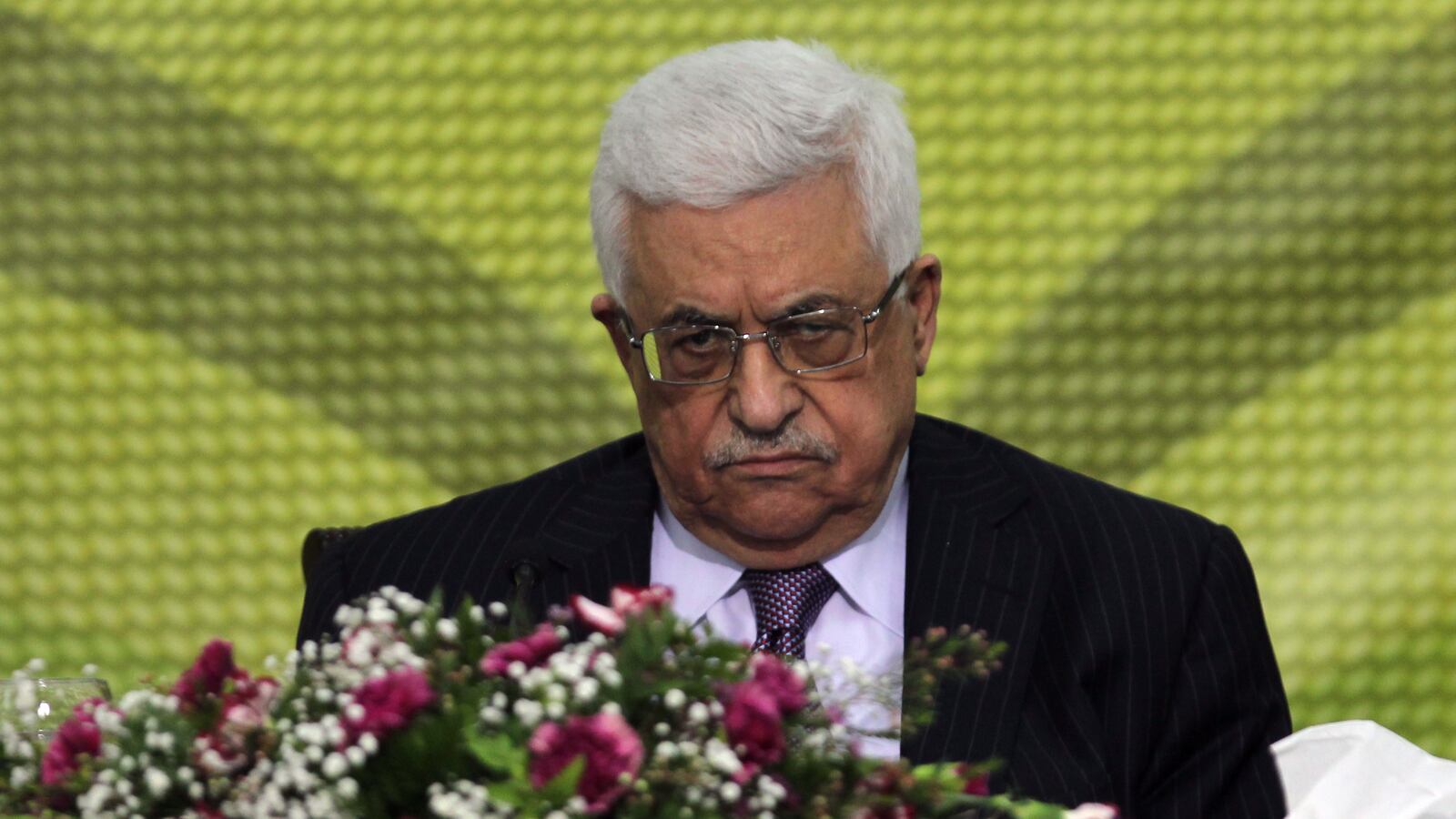Steven Cook recently wrote that the Palestinian Authority should be dissolved as the only option left to kickstart the peace process and force Israel to get serious about talks. He joins a growing chorus of voices (including Palestinians themselves) calling for such a radical policy. I buy the argument that the PA needs to be doing a whole lot more, and that the Israeli occupation is constraining the PA’s ability to do those things. But I am deeply skeptical of such proposals for the simple reason that no-one has yet demonstrated that the outcome would be any better for Israelis and especially for Palestinians.

Mostly this is because nobody offers any other structure or institution to replace the PA, and because they presume that Israel would, in a mad rush of fear, jump in to take care of the Palestinians and—like they did during the first intifada—come to realize that this isn’t working and so will get serious about ending the occupation. Both the gap in solutions and the assumption of outcomes undermine this argument.
Cook and others have rightly noted that the PA functions like a patronage system, in which it ensures salaries and wages, contracts, licenses, and other resources in return for loyalty or at least tolerance among groups in society. But because that system is so deeply entrenched in Palestinian politics, removing it completely without anything to replace it would essentially throw hundreds of thousands of Palestinians “into the streets” without any guaranteed source of income and make a difficult economic situation that much worse.Moreover, it will engender even greater dissatisfaction among the population. Palestinians already have experience taking to mass protests against both Israel and the PA. It’s likely we’d see an outbreak of widespread protests, with the potential to lead to mass violence involving PA security forces, the Palestinian population, Israeli settlers, and the Israeli military. Those who will suffer most under these conditions would be the Palestinians.
I also buy the argument that the PA often functions as a “subcontractor” of Israeli security. But it’s important to note that enforcing security benefits Palestinians as well, by cutting down on the number of alternate sources of power in the West Bank. A monopoly on the use of force is necessary for a stable entity, for personal safety, and for the government to ensure legitimacy and credibility. If the PA stops clamping down on alternate militias, the territory will likely descend into factional violence, more than exists today.
Even if we assume that the PA protects both settlers and Israel either directly or indirectly, removing whatever levels of protection it offers is also more likely to lead to Palestinian-Israeli violence. If settlers today already act violently toward Palestinians while the PA and the Israel Defense Forces exists, how much more violent might they get if the former is removed completely and there’s no reason—i.e., no state-in-the-making—for the IDF to restrain them?
But more importantly, the end of the PA will probably mean the return of the Israeli military to the West Bank; or rather, the expansion of the Israeli military presence there. To be sure, this is what analysts have argued might stimulate a negative Israeli reaction and, from there, a desire to rid themselves of the area as they did south Lebanon and Gaza.
I’m most skeptical about this argument. I think there’s a strong chance the Israelis would dig even deeper into the West Bank. The desire to extend Israeli sovereignty over it, on historical and biblical grounds, was there before 1967 and before the Palestinian Authority. If anything, polls show that Israelis have increasingly come to view holding on to at least some part of the West Bank as desirable and necessary. That feeling won’t disappear with the PA, and might even grow stronger without it.
At the same time, I can’t even count the number of times we’ve heard Israelis from across the political spectrum say that leaving Lebanon and especially Gaza made things much worse: leading to rocket attacks, emboldening Israel’s enemies, making it harder for Israel to contain and respond to attacks, and so on. That’s an argument for staying in the entire West Bank, not leaving it. And it’s certainly one many Israelis would make.
I can’t say with certainty any of the outcomes noted above would come to pass with the dissolution of the PA. But neither can those who argue that dissolution of the PA would lead to a renewal of serious talks or an end to the occupation. It behooves us who want to see an end to the occupation to come up with alternatives to the status quo, even if it does mean the end of the PA. But it can’t be in isolation, or without a clear plan for what comes next or how to deal with it.





